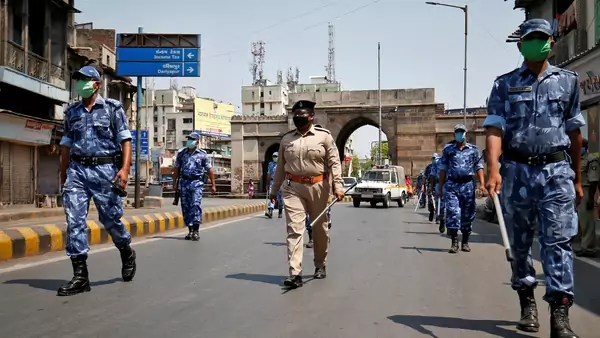
by Ahyousha Khan 30 April 2020
The term ‘security’ is a comprehensive concept that encompasses the internal and external security threats faced by nation-states within the prevalent international system. Thus, each state has a peculiar national security policy, dynamic enough in the face of evolving threats and inherent vulnerabilities. Therefore, a national security policy cannot be unidirectional aiming to address either traditional or non-traditional threats. Security is divided into two major debates i.e. traditional and non-traditional security. Traditionalists believe in military and political strength and their usage to strengthen the state. During Cold War era focus of security and strategic studies was centered on nuclear deterrence. However, the end of Cold War brought about a new wave of understanding about security, where scholars wanted to broaden the contours of security to many other aspects such as human, environment and societal security.
Those views were thoroughly criticized based on the logic that broadening the field of security will create inconsistency in it. However, time and developments at international level proved that security is not static; it evolves with the changing nature of threats, and in the face of latent or imminent risks. Environmental insecurity, human insecurity, terrorism, and cyber insecurity are a few prominent non-traditional security threats faced by modern states in 21st century. Although, these threats garner significant attention but focus of the world major powers remained towards enhancing military and political strength of their states. According to Stockholm International Peace Research Institute (SIPRI), military expenditure of states was $1917 billion in year 2019, which is 7.2% higher than it was in 2010.
So, when pandemic such as COVID-19 struck the world, no state was prepared enough to handle this essentially non-traditional threat. States which possess most destructive technologies such as nuclear weapons, where there is always a chance of nuclear catastrophe, which could lead to millions of deaths, were short of ventilators and intensive care units. Even though scientists warned for years that climate change will increase the chances of pandemics by amplifying disease vectors, the focus of state’s national security never entailed such issues of human security; due to the belief that worst pandemics have already passed. Consequently, the price of this ignorance in terms of human security is now paid with 20% decrease in global economy, worldwide lockdowns, quarantines, and more than 220,000 deaths across the globe (number is still on the rise, with no vaccine having been developed yet). These stats reveal that though non-traditional security threats may not directly damage the national security, they can be catalytic in affecting the other essential elements of the national security. The globalized world that we live in today is more vulnerable to infectious diseases such as COVID-19 due to increasing trade, population density, migration, human displacement, climate change and deforestation. Therefore, it is essential for states to counter non-traditional security threats because they can potentially reduce national resilience of states to prosper. The consequences of these threats would be more damaging for developing world, where there is population density, lack of medical facilities and most importantly economic vulnerability of state to handle such threats for prolonged period of time.
According to World Health Organization (WHO), in low income countries such as Pakistan, government is not spending much on health facilities and capacity of general population to pay for health facilities has also decreased in last two decades. Pakistan is only spending 2% of its GDP on its health care system, against the global average of 10%. Moreover, social protection is also difficult in South Asia currently the expenditure on social protection is less than 2% against the global average of 11%. Furthermore, the cooperation among all sectors and especially various levels of government is also lacking. So far, government of Pakistan has taken some steps to control the global pandemic, including relief package of PKR 1.13 trillion, lock downs, partial lock downs, awareness campaign and tracking through technology, along with efforts for ensuring food and business security.
However, all these efforts by the government of Pakistan are reactionary to handle the effects of COVID-19. Need of the hour is to make proactive strategies to counter threats emerging from environmental insecurity to ensure human and economic security in country in a longer run. With the current economic situation, it would be herculean task for any government residing in Islamabad to handle this or any future pandemic. Although, traditional security threats to Pakistan’s security are very much valid, but resources need to be spared in South Asia for human development and security. It is high time that both nuclear rivals of South Asia resort to diplomatic channels for handling their disputes and issues, so that essential investment could be made in national securities of both states to handle non-traditional security threats. These essential resources should be spent on building the capacity of health system, small businesses, procurement of medical equipment, essential policy and procedural rules at all levels of government for cooperation and response.
With these actions, future might be little less scary for South Asia and especially for Pakistan.
